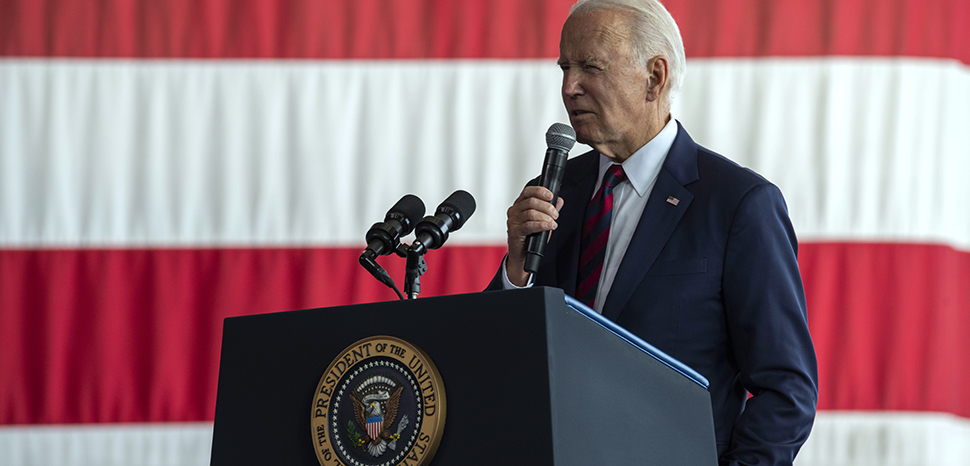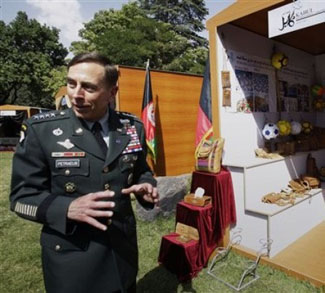In August 2016, three months before the presidential elections, Vice President Biden published an article in Foreign Affairs entitled “Building on Success: Opportunities for the Next Administration.”
At that time, Vice President Biden addressed his message to the US presidential candidates Hillary Clinton and Donald Trump. Foreign policy, where the US faced the growing challenges, was the main component of that address.
According to Henry Kissinger, the second decade of the 2000s, during the Obama administration, was a continuous challenge to the world order. In 2015, Kissinger said: “The United States has not faced a more diverse and complex array of crises since the end of the Second World War.” In 2016, Mac Thornberry and Andrew Krepinevich went ahead and declared that “during the last eight years, as a result of Obama administration’s ineffective strategy, the United States has seen its influence decline and the threats to its interests grow”.
In 2015, Kissinger addressed a message related to the US foreign policy and Russia from the point of view of the strategy: “Still, Russia is mounting an offensive on the border on which, paradoxically, it is least inherently threatened…We need to address the immediate challenges Russia poses while also defining a context for its long-term role in the international equilibrium.”
While giving advice to the next US President in 2016, Vice President Biden could not fail to remember Russia’s annexation of Crimea and Russia’s hybrid aggression in Ukraine in 2014, as well as the challenges to the world order in Syria and the US mission in Afghanistan, which had already crossed into its second decade.
As time has shown, the challenges of the second decade of the 2000s were only a prelude to the problems of the third decade, and Vice President Biden’s advice in 2016 was actually addressed to him, but as president of a country that faced these challenges in the early 20s.
So, what did Vice President Biden advise President Biden in 2016? What advice did he give regarding Russia? How did Vice President Biden incorporate that message addressed by Kissinger in his foreign policy advice in 2016?
“The same is true with regard to Russia, with which the United States should continue to pursue a policy that combines the urgent need for deterrence, on the one hand, with the prudent pursuit of tactical cooperation and strategic stability, on the other. Russia’s illegal attempt to annex Crimea and its continued aggression in eastern Ukraine violate foundational principles of the post–Cold War order: sovereignty and the inviolability of borders in Europe. In response, we have rallied our allies in Europe and elsewhere to impose real costs on Moscow, making clear that this pressure will continue until Russia upholds its commitments under the agreements reached in Minsk aimed at ending the conflict.”
As we saw in 2022, Minsk was neither a war prevention nor a tool for ending the conflict that had been going on since 2014. The call to partners in Europe to “impose real costs on Moscow” also did not work. It seems that the US foreign policy was too static to prevent the Russia invasion of Ukraine in 2022 and modus vivendi between Washinton and Moscow was far from achieved. Rather, regional security challenges echoed from the early 90s again. All dusty issues of 90s, prematurely sent to the U.S. policy archives, needed to be pulled out and finally resolved.
Vice President Biden advised to deter Russia but it’s absolutely not clear how this advice relates to Ukraine. It seems that he missed out on resolving the fundamental issues of regional security related to Ukraine, which had echoed from the early 90s:
“…the combination of our $3.4 billion European Reassurance Initiative and NATO’s new forward deployments in Poland and the Baltics will strengthen our European allies and provide a bulwark against further Russian aggression. For years, we’ve also encouraged Europe to spend more on defense and to diversify its energy supplies in order to reduce its susceptibility to coercion. Now we’re starting to see progress on these fronts. And the next administration should redouble the United States’ commitment to strengthening NATO and our partnership with the EU, even as London and Brussels negotiate their ongoing relationship”.
What “further Russian aggression” did Vice President Biden mean? Further Russian aggression of Ukraine that happened in 2022 or further Russian aggression toward NATO countries in Europe? It seems that he meant later but the case of Ukraine’s security remained outside the geopolitical narratives of the US administration.
In 2022 the Russian aggression is unfolding in Ukraine, not NATO countries. In this context, this can be called a success, but only a partial one, given the relative uncertainty of developments in NATO-Russia relations as a result of Russia’s aggression in Ukraine. Without resolving the issue of Ukraine’s security, regional security in Europe remains largely a geopolitical mirage even despite the well-known nuclear deterrent.
Here is Vice President Biden’s thesis: “For years, we’ve also encouraged Europe to spend more on defense and to diversify its energy supplies in order to reduce its susceptibility to coercion,” but actually only with the beginning of Russia’s aggression in February 2022 did European countries begin to actively reduce their dependence on energy resources from Russia, yet this still did not work as a tool to “coerce” Russia.
Despite all these issues of “coercion” and “deterrence” of Russia, Vice President Biden proposed to remain open to cooperation, although the situation in Crimea and eastern Ukraine was far from over:
“Investing in the core institutions of the West does not require reverting back to simplistic Cold War thinking, however. The United States should remain open to cooperation with Russia where our interests overlap, as we demonstrated with the Iran nuclear deal, as well as with the New START agreement on nuclear weapons. It is also difficult to envision how the war in Syria will ultimately end without some modus vivendi between Washington and Moscow. And as new military technologies raise the stakes of miscalculation and escalation, we will need functional and stable channels with Russia to clearly communicate our intentions and maintain strategic stability”.
Why is the New START important for the US administration? The 2019 collapse of the Intermediate-range Nuclear Forces (INF) Treaty left the New START, mentioned by Vice President Biden in 2016, as the only major surviving US-Russia arms control agreement. In early 2021, with the New START due to expire in February and the two sides deadlocked over the conditions for extending it, it looked as if the last remaining restrictions on the world’s two main nuclear powers were about to lapse.
Following a last-minute deal by newly elected US President, Joe Biden, the two parties extended the new START until 2026, thereby giving each other welcome breathing space to negotiate a replacement treaty. So, the new Treaty as a mechanism of the nuclear weapon control with Russia advised by Vice President Biden in 2016 for the upcoming president, was executed by President Biden as a foreign policy priority just after his inauguration in 2021. What is the likelihood that President Biden will stop on a half way and change his opinion about the pressing role of New START?
With reference to the statements by Jake Sullivan in 2023, no – a course toward the New START is firm. National Security Advisor Sullivan’s statements in 2023 are to some extent in line with Vice President Biden’s advice in 2016. In particular, in 2023, Jake Sullivan made it clear that nuclear arms control, including the dialogue on the extension of the New Start Treaty, which expires in February 2026, is extremely important for the United States:
“Sullivan sharply rejected the idea, voiced increasingly by some Washington strategists, that Biden is overplaying the Russian nuclear threat and deterring NATO from all-in support for Kyiv. The hawks, he said, argue: “This nuclear threat is complete nonsense. Don’t worry about it at all. It’s to be completely discounted.” Sullivan rebuffed the no-worry approach: “It is a threat. It is a real threat. It’s one we need to take seriously.”
Does the Biden administration search now for any modus vivendi between Washington and Moscow to end the war in the context of other geopolitical issues? Is the New START as a mechanism to control strategic nuclear weapon still fundamental for search any modus vivendi between Washington and Moscow?
President Biden’s Interim National Security Strategic Guidance, dated by March 2021, a month after extension of the New START, likely incorporates the New START as a mechanism to control strategic nuclear weapons:
“We will take steps to reduce the role of nuclear weapons in our national security strategy, while ensuring our strategic deterrent remains safe, secure, and effective and that our extended deterrence commitments to our allies remain strong and credible”.
In this context, a search for modus vivendi between Washington and Moscow seems to be in the geopolitical agenda of President Biden. Regional and global security is going to be achieved in the unprecedentedly “diverse and complex array of crises since the end of the Second World War.”
“In more than 40 years of public service, I have never been more optimistic about America’s future – if only we continue to lead”, stated US Vice President Biden in 2016. Hopefully, in 2024 US President Biden remains optimistic.
The views expressed in this article belong to the authors alone and do not necessarily reflect those of Geopoliticalmonitor.com.




